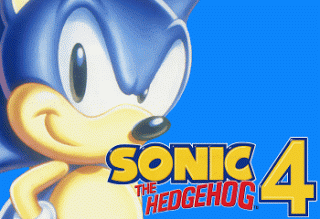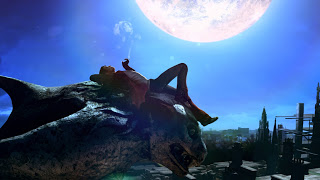This post has not been edited by the GamesBeat staff. Opinions by GamesBeat community writers do not necessarily reflect those of the staff.
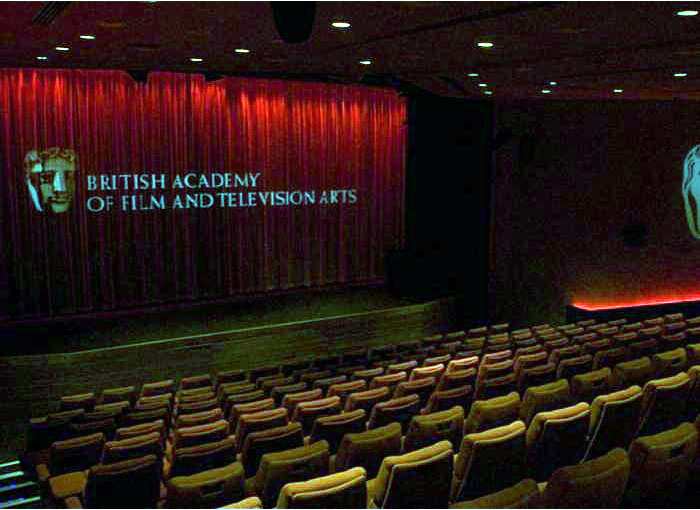 You'd be forgiven for thinking that, had the deafening sound of applause not erupted at that exact moment , there would have been an audible sigh of relief from the audience. Here we were, guests at the prestigious BAFTA headquarters, being given a lecture by a man most of the Internet, it would seem, wants dead.
You'd be forgiven for thinking that, had the deafening sound of applause not erupted at that exact moment , there would have been an audible sigh of relief from the audience. Here we were, guests at the prestigious BAFTA headquarters, being given a lecture by a man most of the Internet, it would seem, wants dead.
Guy Cocker, editor at Gamespot UK, and our host for the evening, turned to his interviewee and smiled.
“Who'd have thought we'd get through an entire Q+A session without a single mention of DMC?”
I couldn't help but agree with him.
Announced at this year's Tokyo Games Show, the next entry in the Devil May Cry series has divided public opinion. An initial teaser trailer and a few meagre screenshots are all that have been released, but already there's the smell of boycott in the air. The criticism, as it always does in these situations, started with something major; Dante, people complained, is no longer Dante.
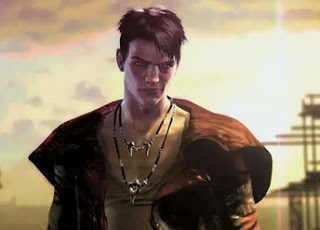 These people have a point. Gone is the white-haired male lead we once knew, replaced by a brunette imposter who seems to have stumbled across his namesake's wardrobe whilst looking for his sister's eye make-up. It didn't take long for the the witch hunt to pick apart every bit of the short clip. Apparently, Dante isn't allowed to smoke now, and according to a vocal group of people, a pre-rendered trailer has already exposed DMC's gameplay as a load of junk.
These people have a point. Gone is the white-haired male lead we once knew, replaced by a brunette imposter who seems to have stumbled across his namesake's wardrobe whilst looking for his sister's eye make-up. It didn't take long for the the witch hunt to pick apart every bit of the short clip. Apparently, Dante isn't allowed to smoke now, and according to a vocal group of people, a pre-rendered trailer has already exposed DMC's gameplay as a load of junk.
A single aesthetic decision by Ninja Theory has earned it the wrath of the Internet.
As the world settled down to watch Sony's 2010 E3 press conference, a similar controversy was brewing, one that would go an entirely different way.
Infamous 2 isn't really anything like DMC. It's not a reboot for one, nor is it developed by a different studio than its predecessor. No one really had any reason to complain when its trailer faded to black in front of the world's games press, except for the fact that Cole — the protagonist of both Infamous and its forthcoming sequel -– was, much like Dante, different.
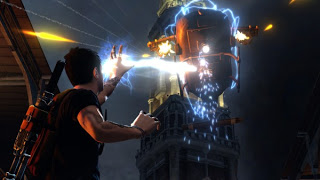 Fans weren't happy. “Where's the old Cole?” they asked, the one they grew attached to throughout the course of the first game. What right did Sucker Punch, the developer of both games, have to change him?
Fans weren't happy. “Where's the old Cole?” they asked, the one they grew attached to throughout the course of the first game. What right did Sucker Punch, the developer of both games, have to change him?
Faced with an "overwhelmingly negative" fan reaction, Sucker Punch retreated with their tails between their legs. They saw the negative press their decision had received, and they went back on it, silently patting themselves on the back for being 'Oh so in touch with their fans.'
There's this lingering thought that still hangs in the air, though. Did fans dislike 'New Cole' because he was worse, or did they just dislike him because he was different?
Of course, in many respects a lack of change is sensible. If two analog sticks work well to control a first-person shooter, then why should a game break this rule for the sake of being different?
The same could be said of other conventions. For example: Real life shotguns don't actually have very-limited range, but since that's what your audience will expect from your game then you'd be wise to make it that way — or else they're going to have to spend time to learn your mechanics rather than simply enjoy them.
Then again, isn't variety the spice of life?
The Legend of Zelda is a series which has refused, to this day, to contain voiced characters. They'll whelp, gasp, and even sigh once in a while, but their only dialog is communicated through on-screen text. Is anyone going to seriously argue at this point that a fully voiced Zelda game would be made worse as a result? Or would it simply be different?
There's a vocal minority of gamers out there who hate with a passion the idea of change. It's these people who complained about new Dante, new Cole, and the fact that Sonic's eyes are green in Sonic the Hedgehog 4.
Faced with this response, developers have two choices: They can have the courage to weather the storm and stick to the decisions that they have made, or they can crumple under the weight of a reaction by an audience who, let us not forget, haven't even played their work.
London, like many other cities, is kept in a perpetual warmth by the thousands of motorists who plough through its streets at all hours of the day. It was this warmth which greeted me as I stepped out of the academy's doors into Piccadilly. I performed the three-tap ritual immediately, as one does when leaving any location. Thankfully phone, keys, and wallet could all be found in their correct pockets.
When I looked up it wasn't the crowded pavement that met my gaze which surprised me, but the man standing on it. Tameem Antoniades, lead designer at Ninja Theory met my eye, and extended an arm not out of compassion one assumes, but out of a desire to bring to an end the awkward silence which had replaced the plain silence that had hung in the air not ten seconds previously.
I'll admit now I couldn't help it. I should have turned into the 'suave freelancer', and thanked him for taking the time to do this talk. At the very least I should have become the adoring fan, praised him for Heavenly Sword, and told him how I couldn't wait to get a copy of Enslaved.
I instead assumed the snarky journalist persona, and without thinking asked, “So, how do you feel about the fan reaction to DMC?”
Tameen looked at me a moment and took a drag of his cigarette. Then without blinking, and without pausing to exhale the smoke from his mouth he said, “I don't care.”
And neither should any other developer.
